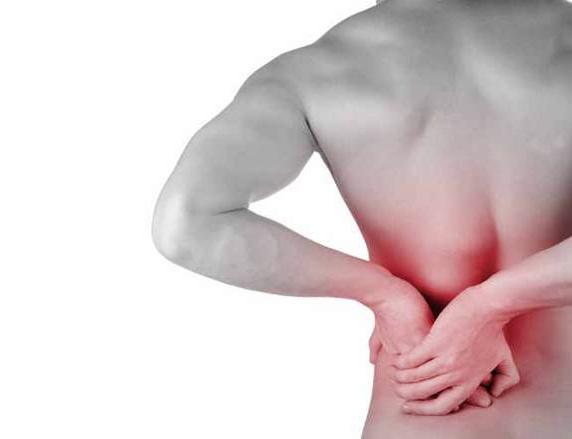Nutrition, its a key element in a healthy living ethos and always a most important aspect if you are wanting to maintain health and happiness. I've always been fond of my food. Indeed a Director once informed me that it was 'always safer to approach when you had food in your hands'. But as with all manner of business owners and busy schedule work people, the hectic daily operations of managing time schedules and being 'on call' means that often you get to the end of the day and realise -
"oops, I forgot to eat"
Primarily this is just wrong. You didn't forget to eat, you didn't plan to eat. Ensuring adequate nutrition is being delivered to your body throughout the day is a must for any person wanting to function at top gear. Planning meals is a part of any persons day and that means making sure that you have food available and ready to go when you need it.
For me it's a matter of scheduling food into my day. Moving from client to client allows very little time to process food, so like any important event, it needs to be scheduled into the day. The other thing is making sure you have food ready to go. With my weekly schedule, cooking every night isn't always possible so there has to be one big cook up a few nights a week where I find myself loaded up with food containers in the fridge. This is my solution, but another one might be to go online to a provider like 'Lite n Easy' or for you gym bunnies 'Muscle Meals Direct' or maybe it's just making friends with the cafe on the corner.
Let's look at what happens when you don't ingest food in your stomach.
There are a whole series of events that begin to happen from the minute you start 'thinking' about food. You don't even have to ingest food for enzymes and saliva to start being released in preparation for the ingestion of foodstuffs. No eating when you are hungry or stimulated by food can have an adverse reaction to how your body recognises when and how to prepare the system for digestion. Irregular secretion of fluids can and does invoke issues such as heartburn and ulceration in not only the stomach but even in the mouth. Saliva contains enzymes within the mouth to begin processing food in the mouth, before it even enters the gastro-intestinal tract. Not ingesting food when you begin to salivate can eat away at the delicate mucous lining in the mouth cavity. An acidic stomach is the best environment to begin to break down food into the various elements that are absorbed throughout the entire digestive system. If this acidic environment is created and then no food is ingested, this can cause the acidic state to eat away at the lining of the stomach, which leads to ulceration and pain in the stomach.
Trying to make up for meals as well doesn't equate to having a healthy diet. Increased amounts of food ingested at one time (binge eating) can do more harm than anything. Aside from the loading on the stomach, the load also falls to the liver and pancreas as it is forced to release large amounts of insulin and stomach acid (bile) to try and process the large amounts of food being ingested. Also, the inability for the body to process foods in sequential order may be upset. For example, fruit takes a shorter time to process than meat. If eating fruit on top of a heavy meat meal, the fruit stays in the top part of the stomach, literally fermenting as the meat is processed over several hours. This can lead to reflux and also food spending too long in the stomach and creating a toxic environment. Indeed having combinations of food types in meals can make digestion difficult as different enzymes need to be released for each food type. Large, complex meals can confuse the system and make digestion ineffective.
Metabolism, the all important element that so many people are keen to manipulate in order to maximise their exercise, training, dietary programs is very delicate and very much influenced by the amount and timing of your food intake. Metabolism is effected by the timing of ingestion - the more regularly and consistently you ingest, the more regular your break down of food stuffs and content will be. That is, the intrinsic nature of your body to regulate or 'schedule' the complex co-ordination of enzymes, acids, proteins and digestive processes that all go into breaking down food, separating it into useful molecules and either storing it or sending it to the areas that are in most need. This also has effects on thermal and renal regulation. Essentially ensuring that the body can measure its temperature, maintain homeostasis and schedule regular defecation to ensure the system is in balance. This balance is vital to maintaining a healthy body and system.
Glucose is the main issue in not eating! The body needs fuel to perform. This fuel is glycogen which is broken down from the foodstuffs we eat. Glycogen is stored in skeletal muscle, the liver and lipid stores (fat cells) throughout the body. When fasting occurs, the body seeks glycogen in all areas to maintain energy levels. When initial sources are depleted, the body will search in the liver and the muscles. Once this is exhausted, it will go to the fat reserves. Converting fats to glucose is a process of Ketosis which results in a decrease efficiency of muscle fibres primarily as a 'protective' mechanism. It is not that the body is feeding off its muscle fibres, it has already done that in the second stage of reduced caloric intake. In Ketosis the body reduces the output of the muscles to conserve energy. As the muscles shrink, they become weaker. This is also accompanied with a reduction in energy as the body tries to protect the fats and muscles from being overtaxed. This muscle loss will effectively decrease your metabolic rate which then decreases your effectiveness to process food once you do ingest it - particularly if you are trying to ingest a large amount of food as mentioned earlier.
For those who skip meals for weight loss, there is bad news on that front. Most of the weight loss is water and muscle weight. Not the desired 'fat loss' that seems the focus of weight loss. This type of fasting only reduces energy levels as the body begins to shut down processes to protect against 'starvation'.
So what of 'fasting'? As I have mentioned in other posts (on other sites), fasting can be beneficial in allowing your system to cleanse itself, ridding itself of toxins in the gastro-intestinal tract as well as 'cleaning' out the system. A word of caution though, you are not trying to do this during a period of performance. In ancient cultures, when fasting occured, the clans or tribes were stationary - they weren't trying to move across plains and mountains and 'perform' whilst fasting. So if you are going to do a period of fasting, it should be planned and timed for a period when you are resting and not in 'performance' mode. Also, the return to eating must be gradual and also combined with exercise and modified behaviour that supports the re-introduction of food.
Continued ingestion of portions that contain enough caloric intake throughout the day within a measured exercise program that stimulates metabolism and utilizing the food ingested is the best way to ensure effiicient function and stimulate healthy bodily function. You may not think it hurts when you miss a meal but if this happens on a regular basis, you are doing yourself no favours. So when you skip out on lunch because you 'just don't have time' think of the damage you are doing long term to your body. It's just not a good idea!
Bon Appetite.



